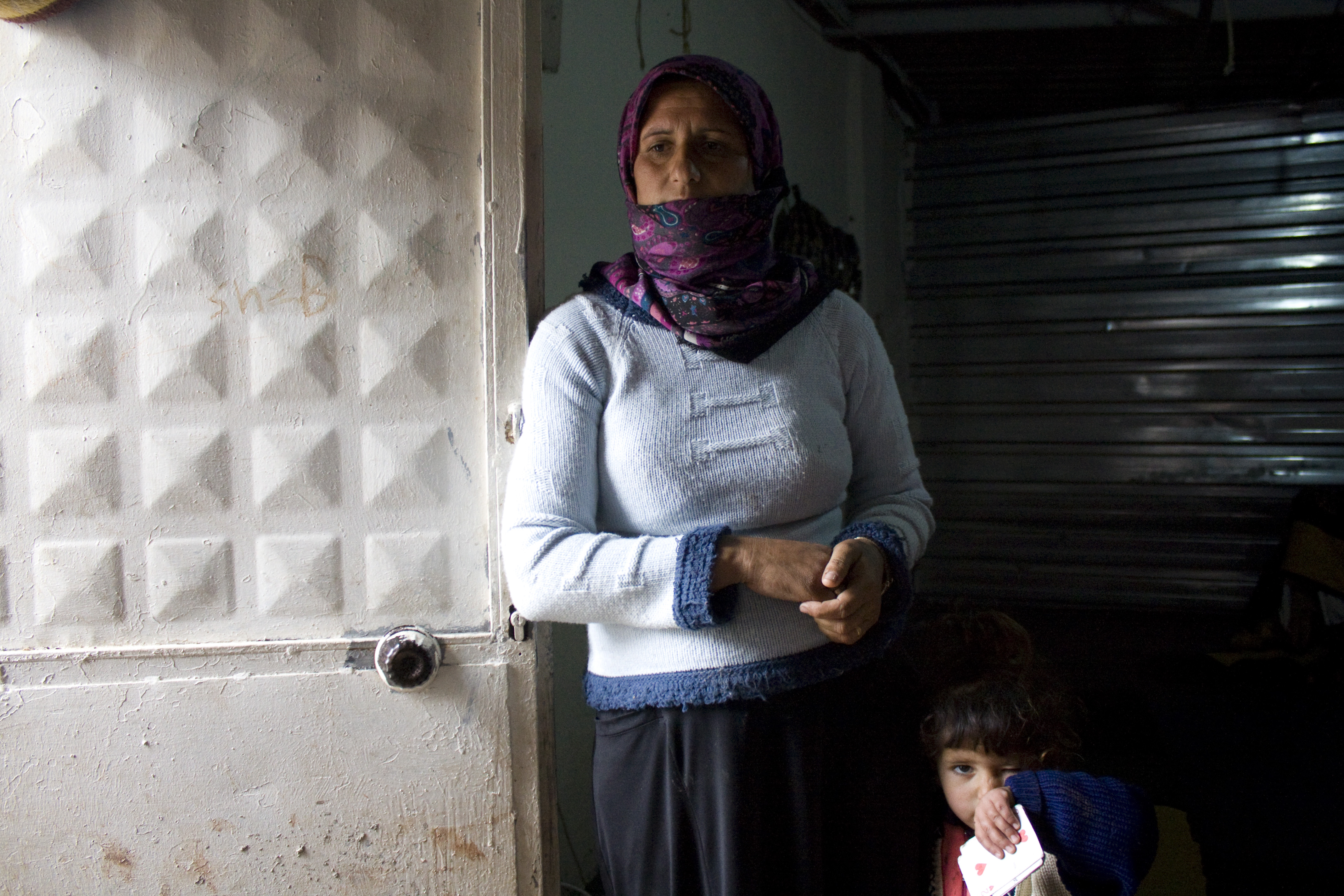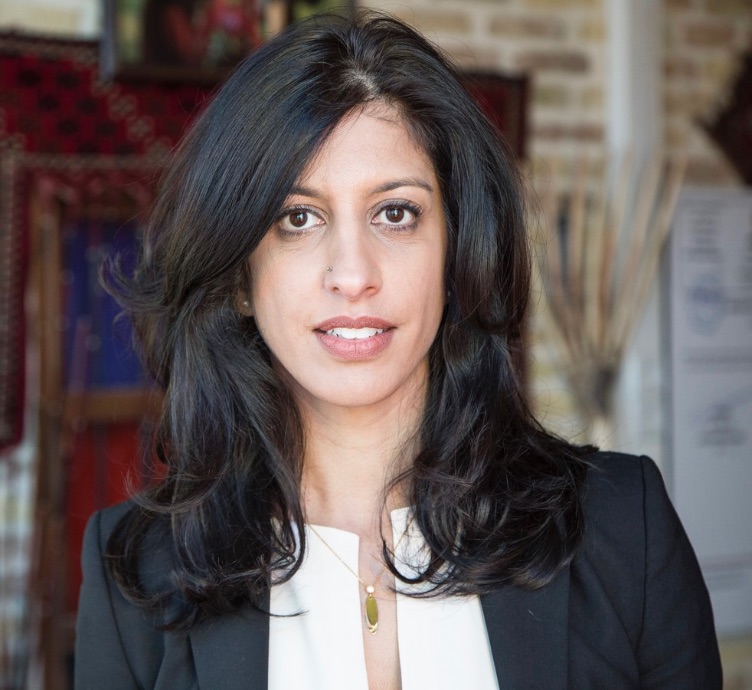New Proposed Asylum Regulations Would Endanger Women's Lives
Regulations proposed by the Department of Homeland Security and the Department of Justice, if adopted, would significantly reduce access to asylum protection for people fleeing persecution through significant changes to substantive law and due process procedural rights.

Published by The Lawfare Institute
in Cooperation With

Women and girls fleeing forms of extreme abuse that mostly targets women—such as rape, female genital mutilation (FGM), forced and child marriage, human trafficking, and severe domestic violence—have always faced an uphill battle in securing asylum protection in the United States. After decades of strategic litigation, female asylum-seekers have made important legal gains. But new rules proposed by the Department of Homeland Security and the Department of Justice would obliterate that progress.
The recently proposed regulations would eliminate legal protection for the vast majority of asylum-seekers fleeing persecution in their homelands and seeking protection in the United States. For women and girls fleeing gender-based persecution, these rules are problematic in two significant ways. First, they arbitrarily limit the ability of women to present claims based on gender-based persecution or gender-specific political opinion. Second, the regulations would also include procedural barriers for women presenting claims that involve gender-based persecution, which are already more difficult to present.
The rules appear designed to eliminate gender-based persecution claims. Under these new rules, for example, even a Yazidi survivor of rape perpetrated as part of the Islamic State’s genocidal attacks in Iraq would face significant hurdles to securing protection.
The 1951 Refugee Convention defines a refugee as “a person who, owing to a well-founded fear of being persecuted for reasons of race, religion, nationality, membership of a particular social group, or political opinion, is outside the country of his nationality and is unable, or owing to such fear is unwilling to avail himself of the protection of that country.” The drafters did not include “gender” as a protected ground, likely because the male drafters did not recognize the role of the state in sanctioning violence against women through state laws and policies. Yet today, the Guidelines on International Protection issued by the United Nations High Commissioner for Refugees (UNHCR) recognize that women can constitute a “particular social group.”
Because gender was not included as a protected ground under the Refugee Convention, claims involving gender-based persecution are frequently presented under the category of “membership of a particular social group.” In 1985 in Matter of Acosta, the Board of Immigration Appeals defined a particular social group as having common and immutable characteristics that “members of the group either cannot change, or should not be required to change because it is fundamental to their individual identities or consciences.” Sex was among the examples provided—and so Matter of Acosta was a critical case for women fleeing gender persecution.
These legal developments continued after Matter of Acosta. In the 1996 case Matter of Kasinga. the Board of Immigration Appeals decided that a young woman from Togo who fled FGM qualified for asylum protection, writing that she was a member of a particular social group “consisting of young women of the Tchamba Kunsuntu Tribe who have not had FGM, as practiced by that tribe, and who oppose the practice.” The Kasinga case set precedent for gender-persecution claims countrywide.
But under the new asylum regulations proposed by the Trump administration, the asylum applicant in Kasinga would likely find her claim denied. Here’s why: under asylum law, a person must show that she was persecuted on account of one of the five protected grounds set out in the Refugee Convention, also called the “nexus requirement.” One of the proposed rules would significantly curtail gender as forming part of the nexus required to establish persecution on account of a protected ground. The proposed rule identifies “gender” as one of eight circumstances in which the secretary of homeland security and the attorney general will not favorably adjudicate asylum based on persecution, barring rare circumstances that are not defined. Therefore, Fauziya Kasinga could establish that she was a member of a particular social group “consisting of young women of the Tchamba Kunsuntu Tribe who have not had FGM, as practiced by that tribe, and who oppose the practice” but under the new rule would be unlikely to establish that she feared persecution on account of a protected ground, because the particular social group includes “women” or “gender.”
Coming back to the example of a Yazidi survivor of Islamic State captivity who was clearly targeted for sexual violence and enslavement based on her gender, this woman would be unable to qualify for asylum on account of membership in a particular social group that includes gender.
In 2018, then-Attorney General Jeff Sessions constrained asylum claims based on severe domestic violence in the case of Matter of A-B-. In that case, Sessions used his authority over immigration courts to overrule Matter of A-R-C-G —a case where the Board of Immigration Appeals recognized domestic violence as a basis for asylum protection. The proposed regulations would codify this ill-advised decision and prevent women from stating claims involving domestic violence.
Ironically, in rules proposed in late 2019, the departments of Justice and Homeland Security proposed seven new asylum bars for those “who commit federal, state, tribal, or local domestic violence offence, or who are found by an adjudicator to have engaged in acts of battery or extreme cruelty in a domestic context, even if no convicted resulted” (emphasis added). If both rules are adopted, asylum adjudicators could determine that someone perpetrated domestic violence to bar him from asylum and then turn around to deny asylum for a victim of domestic violence.
Also problematic is how the rule would seriously narrow the definition of “political opinion” to include only activities in “furtherance of political control of a state or unit thereof.” Political opinion has long been held to be expansive and encompass fighting against communism as well as China’s one-child policy. The rule would narrowly define political opinion within the realm of anti-state action. This would exclude cases where women hold or express a political opinion about women’s rights, including the view that men do not have the right to beat or rape their wives. If this rule is adopted, cases where women are persecuted because of their political beliefs about gendered structural inequalities may no longer succeed.
There are many proposed rules that change asylum procedures in ways that significantly impair access to protection. For reasons of expediency, the proposed rule would streamline cases that include asylum, withholding of removal, and withholding of removal under the United Nations Convention Against Torture and Other Cruel, Inhuman, or Degrading Treatment or Punishment (CAT). Asylum-seekers would be deprived of legal remedies that currently exist for individuals who are in removal proceedings pursuant to the Immigration and Nationality Act § 240 (8 U.S.C. § 1229a). This is important because, as people wait for their cases to move forward, changes can occur in their lives that would make them eligible for other forms of relief—such as the U nonimmigrant visa for victims of crime, the T nonimmigrant visa for victims of trafficking, or adjustment of status based on marriage.
The pretermit rule would allow a judge to make a legal determination of an asylum case based only on a written application, and the judge could deny an application if the applicant did not present a viable claim on paper. The rule permits a judge to ask for additional evidence, giving the asylum applicant “up to 10 days” to respond. This is insufficient time to respond to a request for information regardless of whether someone is represented by an attorney or files pro se. Once denied, the applicant is denied her day in court. It is hard to emphasize how detrimental this change would be to asylum-seekers, as testimony is generally the most compelling evidence in an asylum case. I have witnessed women and men convince adjudicators based on powerful and detailed in-person accounts of persecution.
Applying for asylum without a lawyer is incredibly difficult. The law is complicated, and it is virtually impossible for most people to use the proper legal language when articulating why they fear being sent back to their countries where they face persecution. It is important to remember that because asylum-seekers have often faced past persecution, they may suffer from posttraumatic stress disorder—which can inhibit their ability to remember traumatic events and cause them to appear to lack credibility. This can make it difficult for pro se asylum-seekers to clearly explain past persecution if they are limited to an application without the opportunity to testify.
These proposed rules lose sight of the purpose of asylum law in the U.S. and internationally: to protect individuals from persecution. A person who establishes she is a refugee is presumed to qualify for asylum protection. Yet these proposed regulations take an inverted approach that first seeks to exclude individuals even when they establish that they meet the definition of a refugee. The result will be that many individuals who would normally qualify for protection under the current law will be denied for peripheral reasons unrelated to the core elements of a prima facie asylum case. Once the rules are published and become law, the only recourse for asylum-seekers will be litigation.
Having represented women and girls filing asylum and refugee claims both in the U.S and overseas—and working with Yazidi women and young girls who were abducted and brutally trafficked by the Islamic State—I have seen firsthand the many barriers they face in achieving protection in their own countries. Persecuted people look to the U.S. and other countries to give them an opportunity to escape horrific violence and try to recover and rebuild their lives. While achieving refugee or asylum protection has always been difficult, the fact that it exists gives these women and those who help them hope. If the doors keep closing, many women will receive the message that their lives do not matter.



.png?sfvrsn=48e6afb0_5)

